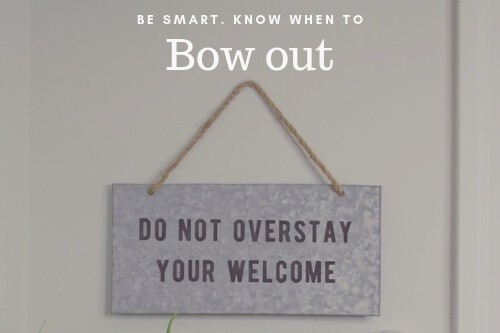
YouTube / iTunes / Spotify / Radio Public / Pocket Casts / Google Podcasts / Breaker / Overcast
Listen to ArtisanEnglish.jp posts & lesson intros here.
Word of the Day: Bow out
Believe it or not, many people love their jobs, and that’s why they want to bow out at a time of their choosing.
No one wants to be forcibly put out to pasture before they feel ready.
On the same side of the coin, nobody wants to leave under pressure because of a significant mistake they made.
When someone bows out, they stop doing something, such as a job or volunteer activity, after doing it for a long time.
In a nutshell, they retire, but they do it gracefully or ceremoniously and on their terms.
As it is with everything, the main thing with retirement is that timing is everything.
We’ve all seen an ageing sports hero who has lost their lustre trying to hang on for one more year.
It’s sad to see them struggling to recapture the glory of their heyday.
It’s incredibly disheartening when we know, and they know they are fighting a losing battle.
They should have bowed out when they were in their best playing days.
Unfortunately, like an old fire horse that still gets excited when she hears the bell, they don’t want to step aside and let the next generation take over.
Yes, when it comes to retirement, timing is everything.
We can see this in Japan today.
People are working longer, and that’s a good thing.
Work helps to give us a sense of purpose and a feeling that we are still contributing to society.
There are many so-called zombie companies in Japan where the managers and owners refuse to bow out and let the next generation steer the company into the new era of technological automation.
Continuing to work is admirable, but a change is as good as a rest.
To bow out gracefully, we all need to get the timing correct.
Flesch-Kincaid Readability Test
This post is understandable by someone with at least an 8th-grade education (age 13 – 14).
On the Flesch-Kincaid reading-ease test, this post scores 70.
The easier a passage is to read, the higher the score on a scale of 0 – 100.

